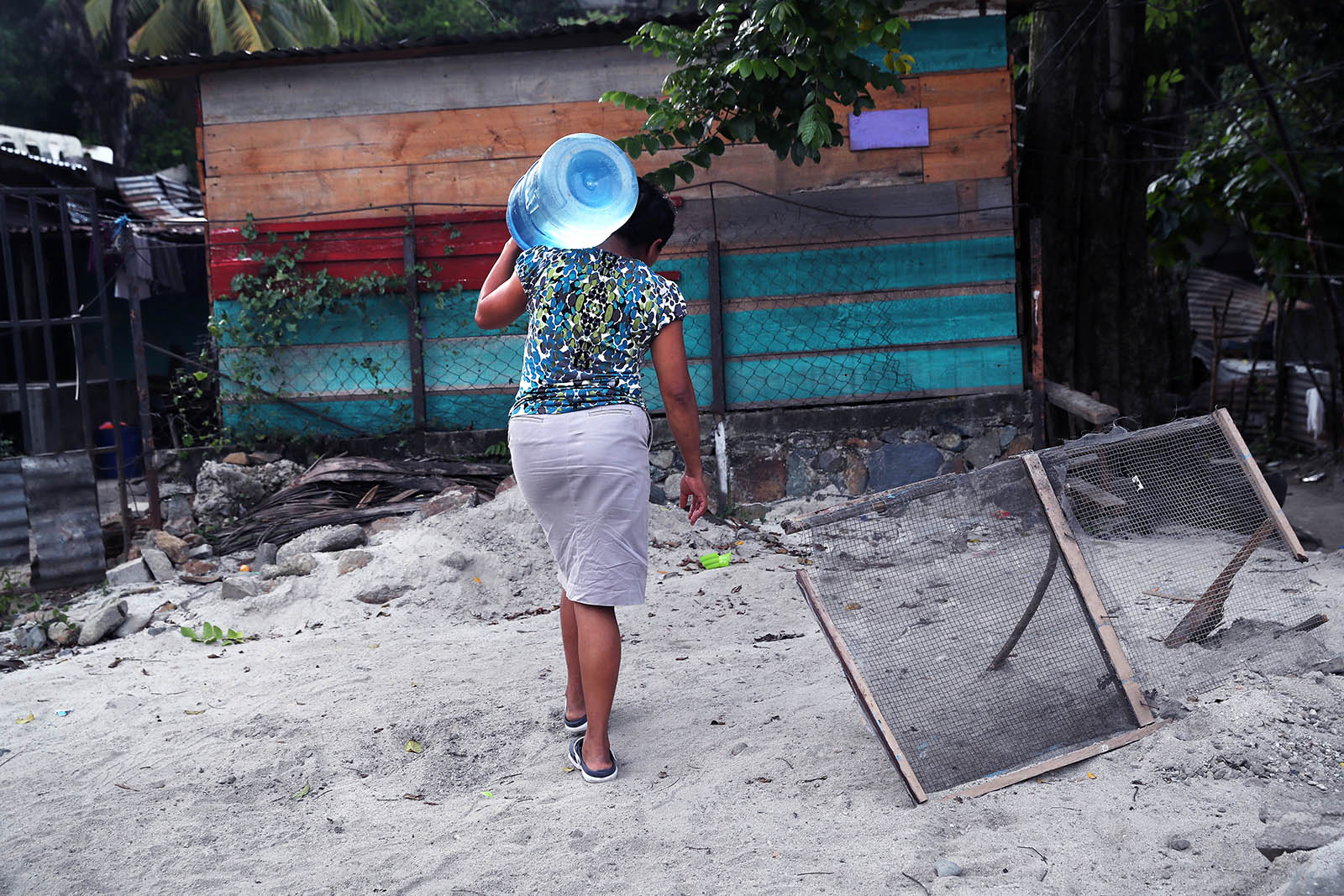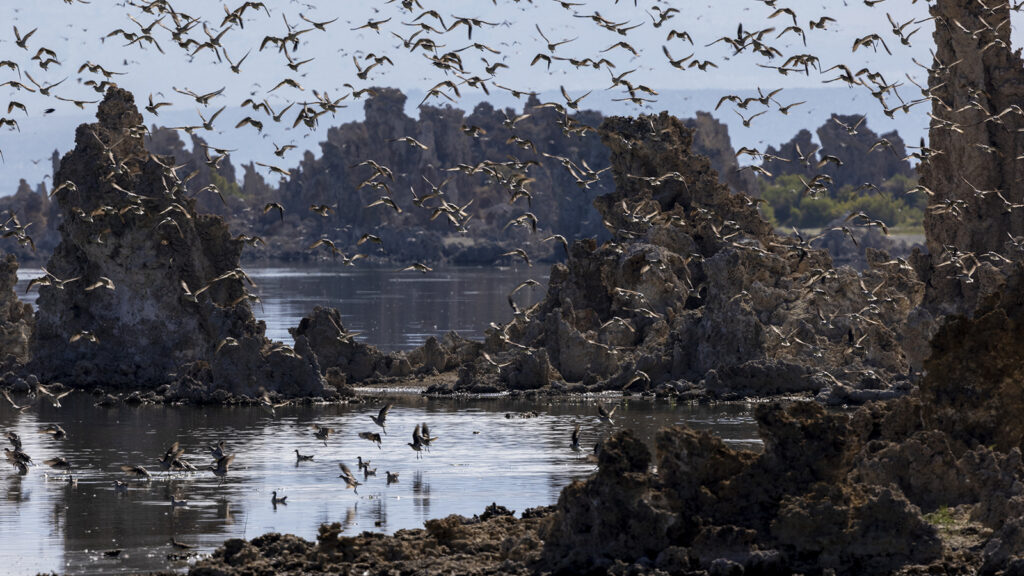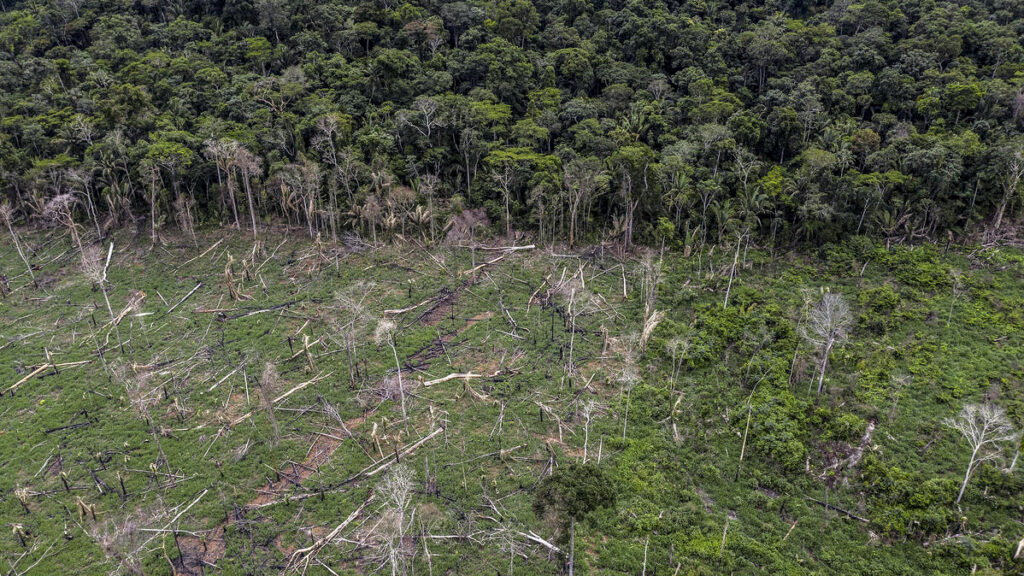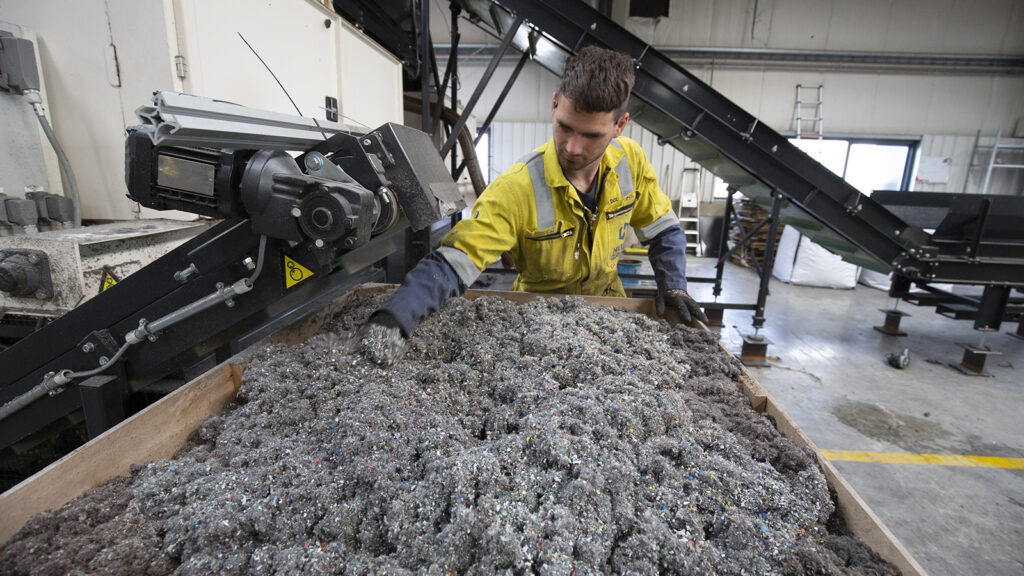Is Your Company a Water Steward?

A woman carries drinking water to her home in an impoverished neighborhood in San Pedro Sula, Honduras. More than 2 billion people live in areas of water stress.
Photo: John Moore/Getty Images
COVID-19 has brought into sharp focus the critical role of clean water, sanitation and hygiene as the first line of defense against the pandemic and other diseases — along with the reality that millions of people still lack access to this fundamental human right.
March 22 is World Water Day — a date used since 1993 to raise awareness of the importance of freshwater resources in sustaining life and livelihoods around the world.
This is the second piece in an occasional series about the state of business around the SDGs, in the lead up to the COP26 Conference in November. Here is the first article in the series.
Half of the World Could Suffer Water Stress by 2050
1 in 10 people currently lack a source of clean water. Three billion live without hand-washing facilities at home. More than 2 billion people live in areas of water stress — defined as areas where demand for freshwater is greater than supply. This disproportionately impacts women and girls, who are often responsible for fetching water, putting their security at risk and reducing access to education and employment.
Sadly, this situation is getting worse, driven by population growth, unsustainable use and pollution. Climate change is also exacerbating the crisis, resulting in more frequent and severe flooding, in turn claiming lives and overwhelming fragile water and sanitation services, and greater incidence of drought. If we do not act, half of the world’s population will live in areas of water stress by 2050.
Diageo is a part of the Business Avengers — a group of companies advocating for leadership and collaboration from business in achieving the U.N. Sustainable Development Goals (SDGs) by 2030.
We are the Business Avenger for SDG 6 on Clean Water and Sanitation. We have been working for nearly two decades to embed water stewardship into our business and supply chain and advocating for others to do the same. As a global drinks company with more than 200 brands sold in 180 countries, our business cannot exist without water.
The Business Case for Investment in SDG 6
Commitment to SDG 6 is not solely philanthropic — there is a compelling business case for investment. There are a lot of ways that businesses can help to reduce water stress. Diageo’s focus on water stewardship over the past decade has enabled the company to achieve a 46% improvement in water efficiency globally, reducing our costs, mitigating risk and building resilience in our operations.
Our water replenishment work around our sites and the areas where we source our agricultural raw materials has helped to enhance health outcomes and livelihoods in these communities. This builds greater resilience in our supply chain and fosters economic growth and connections in our local communities. And our focus on water sanitation and hygiene in our workplaces and with our suppliers provides a first line of defense for COVID-19 and better outcomes for our business and for society.
Responding to the current pandemic and preparing for future shocks will require access to clean water and sanitation for all.
Diageo has committed to using 30% less water per drink (40% in water-stressed areas) by 2030. We will replenish more water than we directly use in all our water-stressed areas — the equivalent of over four billion liters of water — through more than 150 community water projects on five continents, improving water quality and access to clean water, sanitation and hygiene, as well as planting trees and desilting dams.
Water Basins Are Critical
Water stress is often driven by unsustainable practices and management at the river-basin level, so spurring collective action to preserve water in our most at-risk basins is essential, such as the collective action to protect the Tana River supplying 95% of water for Nairobi. Another is the Beverage Industry Environmental Roundtable, which addresses watershed challenges in the Santiago-Lerma water basin in Jalisco, Mexico. It is important to proactively engage with local and national governments on water policy, regulation and planning — recognizing that governance is often the greatest challenge in these basins.
The Water Resilience Coalition and WaterAid initiatives are calls for urgent and collective corporate water action to support the response to COVID-19 and build long-term resilience.
Any Company Can Be a Water Steward
For any company, the water stewardship journey needs to start with an understanding of which sites and suppliers are operating in areas of water stress and where the “water footprint” of products is concentrated.
This will direct focus to site-level water efficiency projects, where they can have the biggest immediate impact and help prioritize supplier engagement.
For many food and beverage companies, for example, a significant part of a product’s water footprint is often in agricultural raw materials, so partnering with and supporting farmers to improve their water stewardship is a core priority. Diageo has worked with WaterAid to provide businesses with guidance on how to take action in this critical area.
Water ATMs
Innovation is key to delivering scalable solutions — such as “water ATMs.”
Inspired by cash-vending machines, water ATMs enable people to buy clean, low-cost drinking water, typically provided by a solar-powered borehole and treatment plant. In addition to providing 45,000 people with access to water in 2019, Diageo trained 287 women entrepreneurs to maintain and run the facilities — increasing their incomes, while ensuring the ATMs are at the heart of their communities.
Responding to the current pandemic and preparing for future shocks will require access to clean water and sanitation for all. COVID-19 has reminded us that no one is safe from the virus until all are safe.
The theme for this year’s World Water Day is “valuing water” — never has it been more important to do so. It is our most precious resource and the key to successfully delivering the SDGs in the critical decade ahead.






